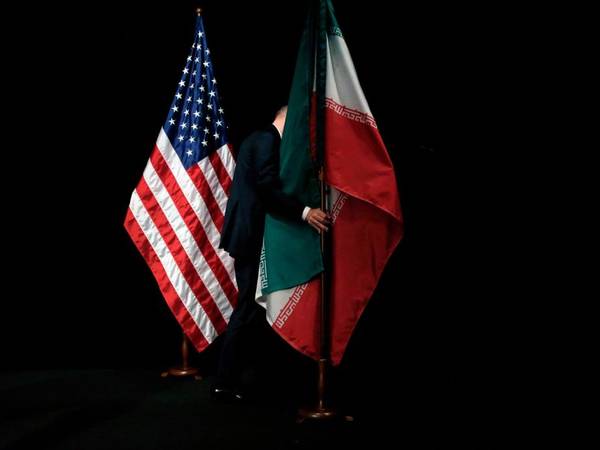A former Iranian diplomat has joined to others in Iran calling for direct talks with the United States, after reports of secret contacts between Tehran and Washington.
Kourosh Ahmadi, in an interview with Khabar Online in Tehran, criticized mediation efforts by Oman and Qatar stating they are inconsistent with Iran's prestige. He emphasized the importance of direct negotiations in diplomatic relations.
However, his choice of words might not have been politically correct, as he stated, "Having small countries such as Oman and Qatar as mediators between Tehran and Washington is not consistent with the prestige of a great country like Iran." He would have been more accurate if he referred to the size of these countries rather than their political importance.
Ahmadi also argued for disregarding European states as mediators, possibly due to Europe's stance on the mid-October deadline for lifting sanctions on Iran's ballistic missile development activities. According to EU Foreign Policy Chief Josep Borrell, the United Kingdom, France and Germany intend to extend the sanctions indefinitely beyond the October 18 deadline.
In response, Iran barred eight IAEA inspectors from accessing its nuclear sites, and some government-owned media in Iran called for "revising" Tehran's ties with the E-3, while other outlets and some politicians raised the issue of direct talks with the United States.
Ahmadi explained that the need for mediators arises from the absence of diplomatic ties between the two countries. Mediators only pave the way for some kind of dialogue and do not play any role beyond that. They cannot alter the essence of disagreements between Tehran and Washington. He suggested that the Europeans may have intervened in the content of the indirect talks between Tehran and Washington.
Former President Hassan during his election campaign in 2013 had also advocated direct negotiations with the United States, downplaying the need to utilize Europe as a mediator.
On the opposite end of Iran's political spectrum, the Khamenei-linked hardline daily Kayhan also called for eliminating mediators in a recent article, albeit without explicitly mentioning direct talks.
Ahmadi rejected the idea of using Qatar and Oman as mediators, pointing out their opposition to Iran's ownership of the islands of Greater and Lesser Tunb and Abu Musa. He also expressed reservations about having the E-3 (UK, France, and Germany) as mediators between Tehran and Washington.
According to Rouydad24 website, some of the “rumors and wishful thinking” about direct talks between Iran and the United States are aimed at influencing the forex market in Iran and subsequently controlling the rising prices of essential commodities and housing.
During the past week, Iran's Foreign Minister Hossein Amir-Abdollahian told the press about several plans by Japan, Qatar, and the Sultan of Oman, to mediate between Tehran and Washington. He also talked about positive signals from the US, possibly in a bid to influence the markets although the markets operate based on facts, not rumors, lies and wishful thinking.
And as for positive signals from Washington, last week, the United States refused to allow the Iranian Foreign Minister's visit to Washington, apparently in the hope of starting overtures about possible talks. He returned to Tehran after attending the UN General Assembly meeting, where he was caught on cameras watching an Iran-Saudi football match on his cell phone, while President Ebrahim Raisi was desperately stuttering through a run-off-the mill text he was trying to read out to impress a delegates who were present during his speech.
